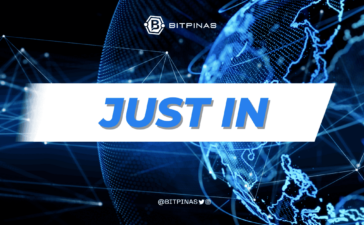The Trump administration is reshaping the federal government with a clear vision: to unleash a new era of American innovation and prosperity.
So far, there’s little reason to doubt that this agenda is taking shape. Economic revitalization, technological advancement, and a resurgence of cultural confidence all point to a promising decade ahead. But no transformation of this scale happens without resistance.
Trump’s political opponents have framed his presidency as an existential threat—not just to their own influence, but to what they, rightly or wrongly, call “democracy” itself.
Institutions rarely dissolve quietly, even when their replacement is necessary. History tells us that entrenched powers do not simply fade away; they fight. And while optimism is warranted, so is prudence.
As the country moves toward a future of unprecedented economic and technological growth, the question remains: how does the individual safeguard their property and way of life through what could become a volatile transition?
Periods of domestic strife are rarely at the forefront of our minds, especially in modern America, where many assume large-scale violence is a relic of the past. Yet a sober look at U.S. history reveals a disconcerting pattern.
From the founding of the republic through to the present day, every generation of Americans has lived through at least one significant period of armed civil unrest.
Whether these episodes took the form of wars, rebellions, or citywide riots, large-scale upheaval has repeatedly forced people from their homes and destroyed their property.
On a practical level, this means that no matter when you were born, the probability you would witness violent conflict is strikingly high.
Indeed, the data suggests that for any 80-year span in American history, there is nearly a 100 percent chance of living through a period of armed turmoil that displaces civilians.
This isn’t to suggest that the United States is uniquely unstable—far from it. In fact, it remains one of the most politically and economically stable jurisdictions in the world.
But if U.S. history demonstrates that nearly every American will experience civil unrest in their lifetime, the probability is even higher for those living in countries with weaker institutions or more volatile political systems.
Fragility in a Land of Plenty
The United States is often celebrated as a land of opportunity. Yet it was forged in conflict during the Revolutionary War, and it has weathered internal storms from the Civil War to Reconstruction-era terror, racial upheavals in urban centers, and the forced migrations of Native American peoples.
Even after nearly 250 years, the pattern remains surprisingly consistent. One might assume that technological progress or social development has diminished the likelihood of large-scale conflict at home, but history demonstrates that stability can unravel faster than expected.
American history is punctuated by periods of violent upheaval that have displaced entire communities. From the Revolutionary War’s Loyalist exodus to the forced removals of Native Americans in the 1830s, conflict has repeatedly upended lives.
The Civil War and its aftermath saw entire regions devastated, while labor strikes and race riots in the late 19th and early 20th centuries left cities in turmoil.
The 1940s brought the internment of Japanese Americans, and the Civil Rights era ignited widespread unrest, culminating in the urban riots of the 1960s and beyond.
Even in recent decades, episodes like the 1992 Los Angeles riots and the Black Lives Matter attacks on businesses in 2020 have shown that political and social tensions can still boil over into destruction.
The idea that America has outgrown these cycles of disorder simply does not hold up to historical scrutiny.
If we take a step back, a mathematical reality emerges. Consider an 80-year window—the typical human lifespan. In any given 80-year stretch from 1776 to the present, at least one of these major conflicts has taken place.
More often than not, multiple episodes of unrest occur within that span. This means that the probability of living a full life without witnessing a significant period of upheaval is effectively zero.
Traditional fallback options like gold, foreign currencies, or real estate have their place. Yet each has limitations, especially in crisis scenarios.
Gold can be confiscated or is difficult to transport across borders; foreign bank accounts may require preexisting relationships or be subject to seizure; real estate is not portable at all.
As an unseizable, globally accessible asset that cannot be thwarted by civil unrest, bitcoin is unique.
Bitcoin Stands Apart
Periods of upheaval often transform money itself into a weapon or a casualty of conflict. Legal protections can disappear overnight, bank runs can empty vaults, and central banks might suspend currency convertibility to prevent capital flight.
When chaos descends, the trust that underpins any government-issued currency can evaporate quickly.
In contrast, bitcoin is secured by a globally distributed network of miners and node operators. Its protocol ensures that, once a transaction is sufficiently mined, altering the record would require an enormous, near-impossible concentration of computational power.
This characteristic – final settlement – offers a stark advantage over other forms of money. No government agency or armed faction can simply walk into a single office and seize the entire ledger.
It is crucial to distinguish bitcoin from the broader universe of digital tokens. Many so-called digital “assets” rest on centralized platforms or small consortia of validators, making them vulnerable to shutdowns or pressure from authorities.
Bitcoin, by contrast, lacks a single point of failure. Its decentralized architecture means that participants in different regions collectively validate transactions, so even if certain regions go offline, the Bitcoin Network can continue functioning elsewhere.
Moreover, self-custody is a defining feature that allows individuals to hold bitcoin without any third party involvement.
You can store your bitcoin in a hardware wallet, or even memorize a seed phrase to carry your bitcoin across borders without detection. Compare this to the limitations of carrying gold or large sums of cash.
Beyond portability, there is the matter of censorship resistance. In times of crisis, governments have been known to freeze bank accounts or impose capital controls, restricting the flow of money as a means of containing social instability.
Because bitcoin transactions do not require permission from a central authority, they bypass conventional gatekeepers. This autonomy can be vital if one’s political affiliation, ethnicity, or personal beliefs suddenly put them at risk.
As someone who works in technology, I see how data can be captured, analyzed, and used in ways that might seem far-fetched during peaceful times.
Should unrest escalate, the lines between corporate and governmental surveillance can blur, making personal information – including financial records – a primary target.
With bitcoin, you retain more control over what transaction data is disclosed and to whom. That said, privacy is not automatic, and best practices are essential to avoid linking transactions to personal identities.
Yet the core design still offers significant advantages relative to legacy systems that broadcast personal details across multiple intermediaries.
Skeptics might suggest that, even if bitcoin could theoretically help a crisis, it is too complex for most people, and that the average person will never master the technical aspects of managing private keys.
While this is a valid point, we should remember that the internet itself was once perceived as too technical for the average user.
Over time, more accessible applications and educational resources can significantly lower the barrier to entry. The trajectory of innovation almost always points toward greater usability once market incentives align.
Stand Ready, Stay Free
We buy home insurance not because we expect our houses to burn down, but because the risk is too great to ignore. The same logic applies to civil unrest.
Recent history – from Eastern Europe to parts of the Middle East – has shown how quickly stable societies can plunge into conflict when political fault lines erupt. Even in the United States, the record of recurring domestic violence is longer than many assume.
One practical approach is to treat bitcoin as a complementary store of wealth, distinct from conventional assets. It does not require you to abandon real estate, precious metals, or cash reserves.
Rather, it serves as a unique hedge against scenarios in which local property and monetary systems come under extreme pressure.
When measured against the real possibility – revealed by centuries of history – of bank closures, capital controls, or direct asset confiscation, having a portion of your net worth secured on the Bitcoin Network can feel like prudent insurance.
None of this is to say that bitcoin, by itself, prevents unrest or solves deeper societal issues. What it does is provide an independent monetary network, one that remains operational even if regional or national infrastructures collapse.
Its censorship-resistance ensures that it will persist regardless of local political climate.
Nearly every American generation has witnessed large-scale violence or property seizures, and there are no assurances that the future will be any different. By storing value in bitcoin, individuals can maintain a level of independence from local disruptions.
Through self-custody, one’s savings are not subject to the whims of any single government, nor do they vanish if a regional banking system fails.
To build a monetary network that offers genuine resilience, the bitcoin community must safeguard its decentralized ethos, prioritizing user education and robust privacy features.
In doing so, we collectively strengthen a system that can remain a lifeline in times of strife – not just for Americans, but for anyone who lives under the constant, if often overlooked, risk of internal turmoil.
Stand ready, stay free, and recognize that the best guard against life’s inevitable storms may well be the monetary equivalent of a lifeboat — an asset governed by no central authority and capable of enduring even when the physical world around it descends into chaos.




